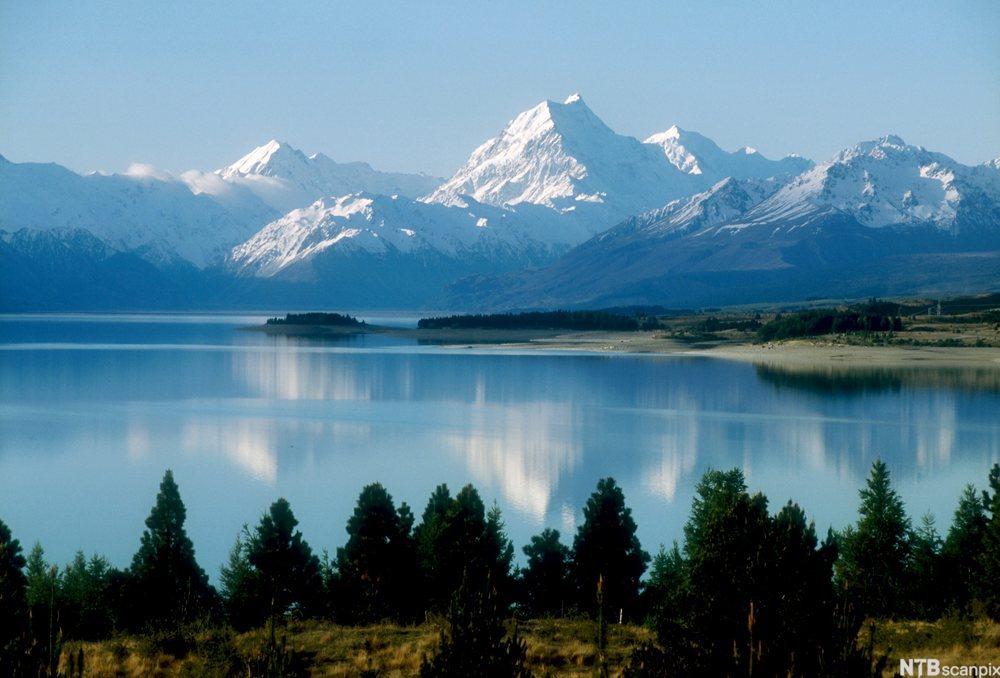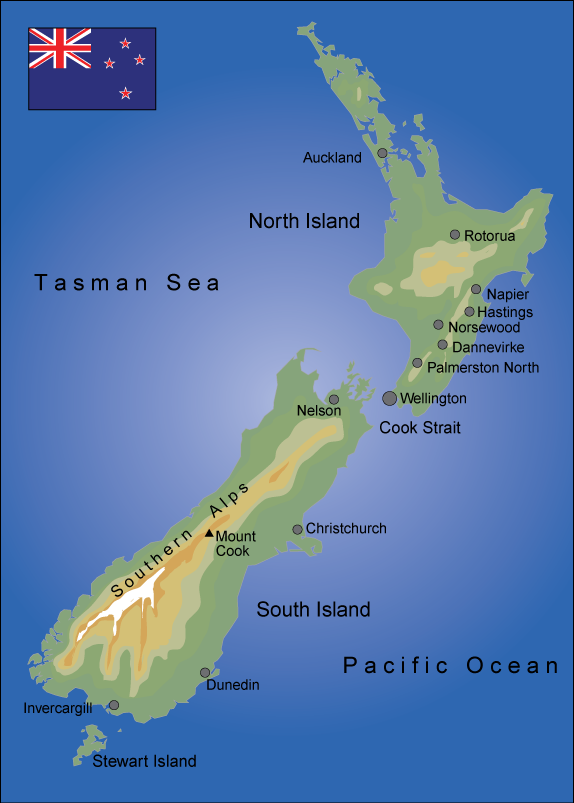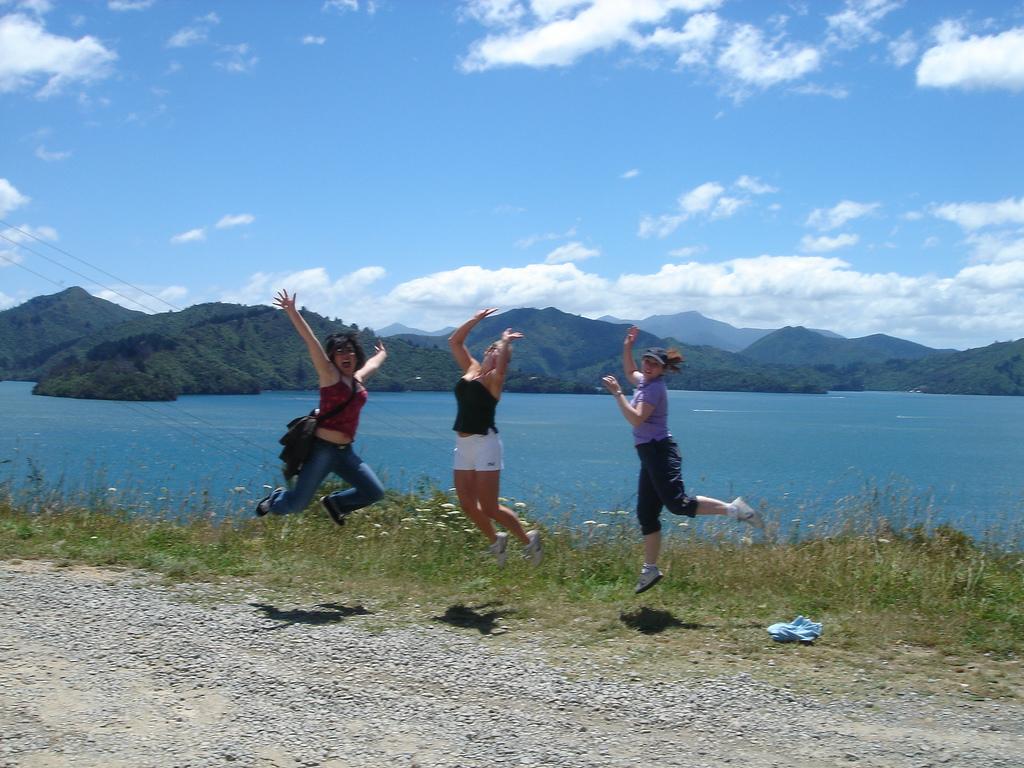Easy Text: An introduction to New Zealand

New Zealand - Introduction
The population of New Zealand is 4.3 million and is mostly people of European descent; the native Māori are the largest minority. The most commonly spoken language is English. Maori is also an official language.

New Zealand is isolated, geographically. It is about 2000 km southeast of Australia, across the Tasman Sea, its closest neighbours are: New Caledonia, Fiji and Tonga. The capital city of New Zealand is Wellington, though most people are more familiar with Auckland, which is the largest city.
Economically, New Zealand is now better off than in the 1970s and 1980s. Earlier, New Zealand exported a lot of meat and dairy products to Britain. When Britain joined the European Union in the 1970s, part of the deal was that Britain should import from the other EU countries. This was bad news economically for New Zealand.
Many people left New Zealand to settle in Australia, so political changes were made to help the situation. Now things look better. Agriculture continues to be the main export industry in New Zealand, and in 2007 a New Zealand dairy cooperative controlled almost one-third of the international dairy trade. Other export items of New Zealand are meat, wood, fruit and fish. New Zealand also has a good wine industry.

Tourism plays an important role in New Zealand’s economy. About two million tourists visit every year. New Zealand is marketed as a "clean, green" adventure playground, with typical destinations being nature areas such as Milford Sound and the Tongariro Alpine Crossing, while activities such as bungee jumping or whale watching are typical tourist attractions.
New Zealand has amazing nature and wildlife. However, the country has suffered a lot of wildlife extinctions. This is because of human activities like hunting and importing non-native animals, such as weasels, cats, goats and deer.
Several islands are now wildlife reserves, where common pests such as possums and rodents have been removed to allow the reintroduction of endangered species.
On the brighter side, the Kea Parrot of New Zealand is alive and well and is probably the rudest bird on earth! It is not afraid of humans, and nibbles at car’s tires or windshield wipers, or even people's fingers, if it gets close enough.
Tasks and Activities
Find Out
- New Zealanders are often called Kiwis. Search the Internet and find out why.
- Today, Aotearoa (the land of the long white cloud) is the Maori name usually used for New Zealand. The Māori also referred to the North Island as Te Ika a Māui ("the fish of Māui") and the South Island as Te Waka a Maui (the canoe of Maui). The South island can also be called Te Wai Pounamu ("the waters of greenstone") or Te Waka o Aoraki ("the canoe of Aoraki"). Search the Internet and find the story behind one of these names.
Tourist Advertisement
Make a brochure or advertisement for New Zealand to lure tourists to these beautiful islands. Base your information on what you can see in the film 'New Zealand a Dream' (8 min). You will find the film on YouTube by searching for its name.
Writing
Watch the film 'Backpacking in New Zealand' (6 min) by Carlos Costa. You will find the video on YouTube by searching for its name. Write a letter back home or an entry in a travel blog based on what this guy experiences. Find a suitable title for your text.
Relatert innhold
New Zealand's 29 regions stretch more than 1,600 kilometres across two main islands.